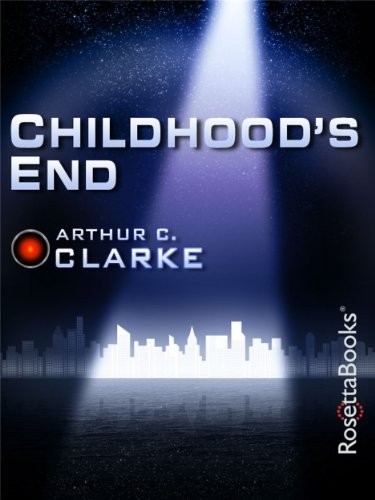Review of "Childhood's End (Arthur C. Clarke Collection)" on 'Goodreads'
4 stars
This is my first time reading this classic from the golden age of science fiction. I had to remember to make alowances for the way our standards have shifted in the almost seventy years since the time it was published in order to appreciate it for what it did. the first two thirds of the book sets up the payoff in the last third, to the extent of feeling like two different stories. The first part is exposition-heavy, with all the worldbuilding lovingly placed on display, with a mystery which is paid off about halfway through the book. I liked the viewpoint character of Stormgren best of all, the United Nations secretary general who was the sole point of contact between the unseen and powerful Overlords and the human race that played a part in the plot which was essential but rather far from the climax. he had an awareness of where he was placed and yet had enough of a rebellious nature that he prepared an act of snooping on his own, but only after he could assure himself that it would not throw off the major arc. The author was working hard to establish how it was that Earth came to accept the intrusion of the visitors mostly without violent reaction.
The characters and settings of the middle part of the book were my least favorite. It portrayed the post-scarcity people with what was supposed to be a utopian lifestyle, free of want or violence, that made me think of the time when the book was written. After the second World War, this was a popular, yet far-fetched thing to imagine in a far-distant future, but the cocktail party and open relationships seemed dated to me now. The tendency to infodump (whether in speeches or in straight description) was not taboo in the period when this was written and seemed especially noticeable here. It introduced a few characters, human and alien, who play important roles at the climax. There is some representation by those of non-western cultures which were probably radical for the 1950s, though the cultures in question did not seem to affect the direction of the plot in a significant way. The Overlords who speak human languages speak only English apparently even though their minds and their anatomy have the capacity for any human tongue.
Clarke threw all of his imaginative powers into the scenes in the last section of the book. I didn't mind the narrative as much because of the sheer pleasure in his inventiveness. At the same time, the story is taking a sudden turn, becoming simultaneously tragic and transcendent. The situation of the Overlords is reinterpreted in a surprising way and at the very end you wonder whether they end up being the most significant protagonists in the story. I haven't read many stories with as daring a final twist as this. This made me raise my rating of the book from three stars to four stars.
The audio production was narrated by noted Science Fiction author Robert J. Sawyer whose work focuses on many themes similarly to the ones first set out here. He does a good job with the different voices, though I would note that I had to make allowance for the female characters in the second half of the book, none of them displaying much agency. The performance felt pretty fresh overall and I think it enhanced the experience of the novel.

